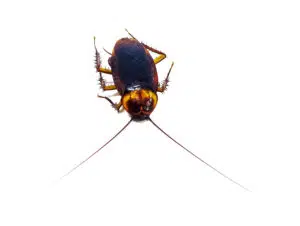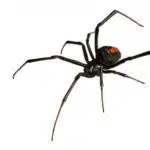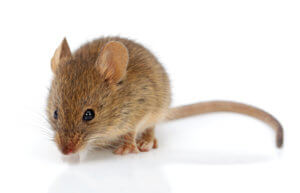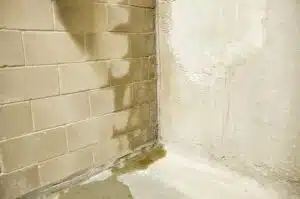How to Keep Bugs & Pests Out of Your Basement
By: Rita Stadler
Every home has a secret space; that dark and dusty place where if you look too closely, you feel a little afraid. For many homes, that place is the basement or crawl space. It probably doesn’t help that basements are the actual setting of many spooky stories, or that they may be poorly lit, slightly unfinished, and just generally designed to give you the heebie-jeebies. One of the most terrifying things is finally gathering the courage to walk down to this lower level, and then you end up seeing something scurrying back into the darkness.
Basement pests and bugs are a common issue for homeowners, even for those with completely finished basements. This space offers many hiding places for unwelcome intruders to create their cozy new home. Just because it’s the basement doesn’t mean you should disregard pest control in this area; pests can still cause damage to your home and bring about health concerns for you and your family from the lower level.
Never fear though, here you’ll find tips to help you through identifying common basement pests, understanding why they are drawn to this space, and how to get rid of them for good.
Importance of Addressing Pest Infestations in the Basement
Aside from the ick factor, basement pest infestations are more than just a nuisance and should not be ignored. They can have a significant impact on your home, your personal property, and your family’s well-being. They can cause issues, including:
- Structural Damage: Pests like termites can chew through wood and insulation, compromising the structural integrity of your home. Meanwhile, rodents may damage electrical wiring and utility lines, creating a fire risk!
- Health Risks: Some pests can carry diseases harmful to you, your family, and even your pets. Cockroaches and rodents have been known for triggering allergies and asthma symptoms. Furthermore, some of the remedies for these pests can be just as harmful, doubling the health risks.
- Decreased Home Value: A pest-infested basement, or a home with pest damage can lower the resale value of your property and impact insurance rates.
- Unpleasant Odors: Rodents and other household pests can leave behind waste and unpleasant odors, making your basement less inviting. The odor may linger on stored items even after the issue is resolved or the items are moved, requiring special care and cleaning.
With these risks in mind, let’s delve into identifying common basement bugs and pests and the reasons why they find your space so appealing.
Identifying Common Bugs and Pests Found in Basements
Whether you have an unquenchable curiosity, or aversion to the sight of anything with too many legs, you’ll want to know what kind of bugs are commonly found in basements. Knowing what you’re dealing with will make it easier to resolve the situation, and it might even give you a new perspective on these creepy crawly critters.
Cockroaches – Roaches can be identified by their brown or black coloring, with flattened, oval bodies and long antennae. These bugs can transmit diseases, trigger allergies, and contaminate food.
Spiders – There are various types of spiders found in basements. Some, like the black widow and brown recluse, are venomous and should be approached with caution. The primary concern with spiders is the threat to human health due to their venom. It should be noted that spiders can be beneficial pests, helping to control other insect populations (and eating them before they venture to other parts of the house!).
Rodents – Signs of mice to look for include droppings, chewed items, and nests. Rodents can cause significant structural and electrical damage and spread diseases.
Termites – Identify a termite infestation by looking for mud tunnels, damaged wood, or discarded wings. Termites are problematic because they can silently destroy the wood in your home, which can lead to significant structural damage.
Other common basement insects include:
- House Centipedes
- Silverfish
- Earwigs
- Millipedes
- Crickets (homeowners will hear chirping)
- Pill Bugs.
Each of these pests can cause their unique set of problems, from property damage and health risks, to simply being a nuisance.
Why Pests are Attracted to this Space
Understanding why pests are drawn to basements can help you address the root causes of infestations.
Many pests are attracted to moisture. These spaces often have water leaking issues, and damp basements provide an ideal environment for many pests to thrive. Termites and silverfish are particularly drawn to damp spaces.
The lower level of a home also often has many dark corners and hidden crevices that provide shelter for pests. Just like garages, these spaces are also typically used for storage meaning there are stacks of boxes and containers everywhere. Spiders and rodents seek the darkness and concealment these hidden spaces provide.
Basements often include a wide availability of food sources. Again, many people store organic materials like cardboard boxes, paper, and fabrics in their basements, which attract rodents and insects. Pests that feed on insects, like centipedes, will be drawn to the presence of other bugs.
Now that we understand the reasons behind pest infestations, let’s explore how to keep them away from your basement.
How to Keep Pests Away from the Basement Area
It’s important to get rid of any pests that may be in your basement currently, along with implementing preventative pest control methods for the future.
Seal Entry Points
- Identify and Caulk Crevices: Inspect your basement for cracks, holes, and gaps, and seal them with caulk or weatherstripping. Use steel wool or hardware cloth to block larger openings.
- Managing Floor Drains and Windows: Ensure that floor drains and windows are properly sealed and maintained to prevent pests from entering.
Maintain Dryness
- Use Dehumidifiers: Keeping humidity levels in check will discourage pests who like damp areas, like termites and silverfish.
- Addressing Water Leakage: Fix any dripping faucets, leaky pipes, and appliances to eliminate water sources for pests.
Limit Accessibility to Food
- Proper Food Storage: Store food in airtight containers to make it less accessible to pests. This goes for pet food, too!
- Routine Clean Up and Organization: Regularly clean your basement and declutter to remove hiding spots and food sources for pests. This has the added benefit of helping keep your property in good condition and will make it easier to identify a pest problem before it escalates into a serious infestation.
Repellent Strategies
- Stay Away® Pouches for Prevention: EarthKind’s Stay Away pouches can deter pests like mice, cockroaches, and spiders away from your home. Place them strategically in your basement near potential entry points, valuable items, and anywhere there are signs of pest activity.
Keeping your basement free of pests is not only a matter of comfort but also a significant aspect of home maintenance.
Remember, a clean, organized, and well-maintained basement is less appealing to pests. By implementing these measures, you can protect your home, your family, and your peace of mind from the unwanted guests that tend to take refuge in your basement. Shop EarthKind products online or in a store near you.











 day
day